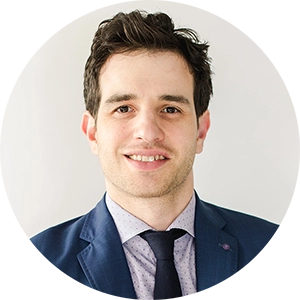Tips for dealing with life during COVID-19 by Samantha Voss, MSW
*(the examples provided below are composite cases, synthesizing disguised information and not any patient in particular)
In the wise words of one of my clients, “2020 has been…a lot.” Very rarely do events impact our collective cultural consciousness in the way the events of this year appear to have touched us: the sudden death of Kobe Bryant, a worldwide pandemic, economic downturn, and increased awareness about the systemic injustices Black folks face in this country. Each of these events, in their own way, forced many of us to consider difficult topics and also increased stress and uncertainty amongst many, myself included. Issues such as mortality, humanity, security, and trust have frequently emerged in session. The ways in which we handle these existential questions is tied to our usual coping strategies and personal history.
Li, a 46-year-old salesman, describes himself as a “workaholic.” In our work together, Li noticed that his job served as a source of pride and self-worth for him. When work was going well, Li generally felt pretty good. When work was not going so well, Li struggled with feelings of inadequacy and sadness. In the midst of our trying to understand this link, Coronavirus hit and Li transitioned from his vibrant, competitive work environment to working from home. As the weeks passed, Li became more dejected and forlorn.
The more we discussed, Li noticed that he had abandoned many of the self-care activities he was used to enjoying (dinners out with friends, grabbing a drink with coworkers, going to the gym) and found that he was working twelve or more hours a day. Work and home had become tied together in a way that made it nearly impossible for Li to create balance in his life. The more Li thought about this, he noticed gravitating to the aspects of his life he felt able to control. He couldn’t control the fact that many of his self-care options were no longer available because of the Coronavirus, but he could hyper-focus on work and his production.
Li’s reflections about this helped him recognize a pattern in his life: in times of uncertainty, he clung to aspects of his life he could control. As a young child, Li recounted packing and carrying an “emergency bag” any time he left the house. During his parent’s divorce in middle school, Li recalled keeping his room meticulously clean. While looking for a job post-college, Li spent many hours at the gym. When difficulty arose, Li found ways to distract himself from his feelings and dedicate his energy toward something he felt was productive.
Li’s anxiety, on some level, was productive. In the past it afforded him a security blanket of sorts, a clean space, and a healthy body. At present, he was making more money in commission than he previously had. Li acknowledged each of these positives, and also recognized that in focusing on other tasks, he disconnected himself from what was happening internally and lost his sense of balance. As a result of this recognition, Li was able to consider and explore his feelings about what Coronavirus had taken from him and to grieve the sense of security and normality he formerly held. He was also able to achieve a better work-life balance.
Li’s case and the current state of our country remind me of the often inevitable tie between uncertainty and grief. As humans, we lose much in the face of uncertainty. Perhaps we have been forced to reconsider our previously held beliefs about the justice system in the United States, or perhaps our eyes have been opened to how suddenly our lives can drastically change. When this happens, it’s not uncommon to experience grief. Grief is often thought of in connection with loss through death, but loss can take many forms.
When facing uncertainty, it can be helpful to ask ourselves what we have lost, or what we feel has been changed for us. As in Li’s case, we may also benefit from thinking about how we respond to stress and to consider whether we are depending on old unhelpful patterns of behavior to cope.
Click HERE to schedule an appointment or call our office at 248-514-4955.

Author: Anton Babushkin, PhD
Looking for a Therapist? Start My Wellness has highly experienced Licensed Therapists that are currently accepting new patients.


